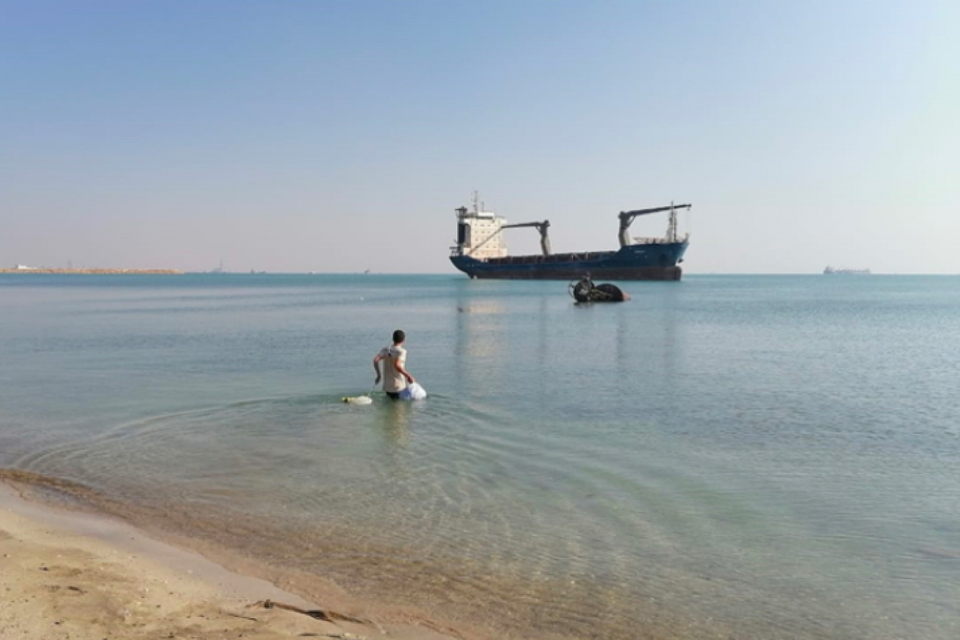Seafarer Mohammad Aisha returned to his native Syria on 22 April, after being forced to live on an abandoned ship in the Suez Canal for four years while the vessel waited to be sold. He was allowed to leave after a union representative of the International Transport Workers’ Federation (ITF) in Egypt took his place and became the ship’s legal guardian.
Aisha was the chief officer on board the Bharani-flagged MV Aman (IMO 9215517) for just two months before the vessel was detained by Egyptian authorities due to expired safety equipment certificates. When the owner abandoned the ship, an Egyptian court designated Mr Aisha the vessel’s “legal guardian” – preventing him from leaving the Aman until the ship was sold or a replacement guardian found.
The vessel had no power and was covered in insects and rodents. Aisha had to swim ashore to charge his phone, and for food and water.
Union proposal secures breakthrough
The ITF has been representing Aisha’s case to Egyptian port and immigration officials on an almost daily basis. ITF Arab World and Iran network coordinator Mohamed Arrachedi said that after months of frustration at inaction from the shipowner, the Bahraini registry, and Egyptian authorities, a breakthrough came last week. The ITF offered to the court to have one its union representatives in Egypt take Aisha’s place and become the legal guardian of the vessel.
‘This has been one of the most frustrating abandonment cases I have worked on, because the situation has been so desperate for Mohammad for so long,’ said Arrachedi. ‘It has to be said that the suffering caused to Mohammad could have been perfectly avoided if the shipowner and the other parties with obligations to him and the ship did the right thing from the start. Mohammad has lost four years of his life.’
Arrachedi said that Aisha cannot quite believe that he is finally free. ‘He is naturally overjoyed, but he is very tired. There have been so many false-starts to get him home. Until his feet were on that airplane – we took nothing for granted,’ said Arrachedi.
The seafarer told the BBC how he felt minutes before his plane was due to take off: ‘How do I feel? Like I finally got out of prison. I’m finally going to be rejoined with my family. I’m going to see them again.’
Ongoing fight over seafarer’s wages
Undeterred by his four years aboard the Aman, Aisha still wants a career in seafaring. ITF is now still fighting to recover the seafarer’s wages – a battle often required when shipowners abandon their vessels.
‘It is absolutely unacceptable that it is always the seafarers who are made to pay the very high costs of abandonment. Abandonment is the cancer of the maritime industry and it needs to be eradicated,’ stated Arrachedi.
‘Legal guardianship system must be reformed’
Arrachedi said the case of Aisha has put an important spotlight on Egypt’s problematic system of “legal guardianship” in cases of seafarer abandonment, which needs to be reformed. ‘The appointment of seafarers as legal guardians is creating huge difficulties and suffering for seafarers.’
Aisha’s case is similar to that of Vehbi Kara, a Turkish master who was trapped aboard a ship in the Suez Canal for months when an Egyptian court made him legal guardian of the abandoned MV Kenan Mete (IMO 8701935). ITF advocacy saw Captain Kara released to a nearby hotel, but he remains unable to leave Egypt.
Picture by ITF.








